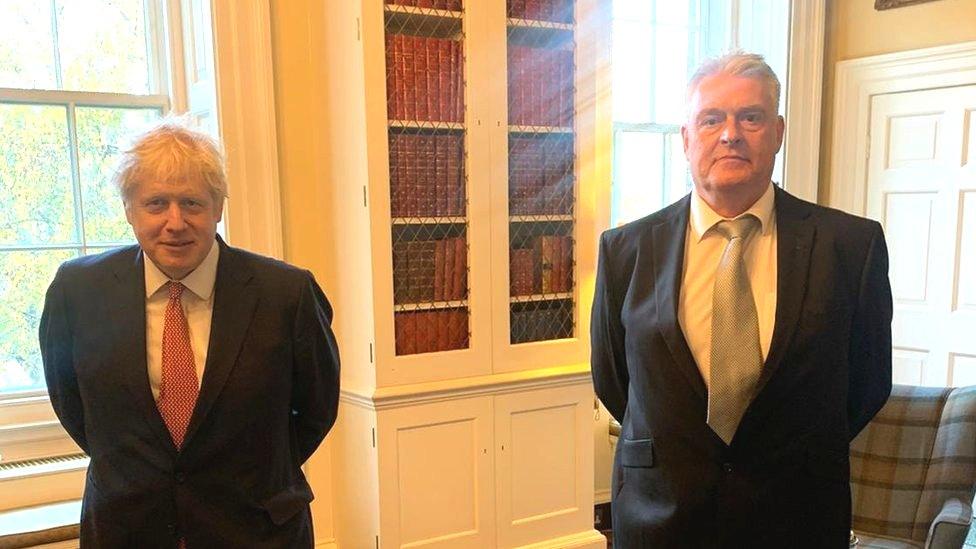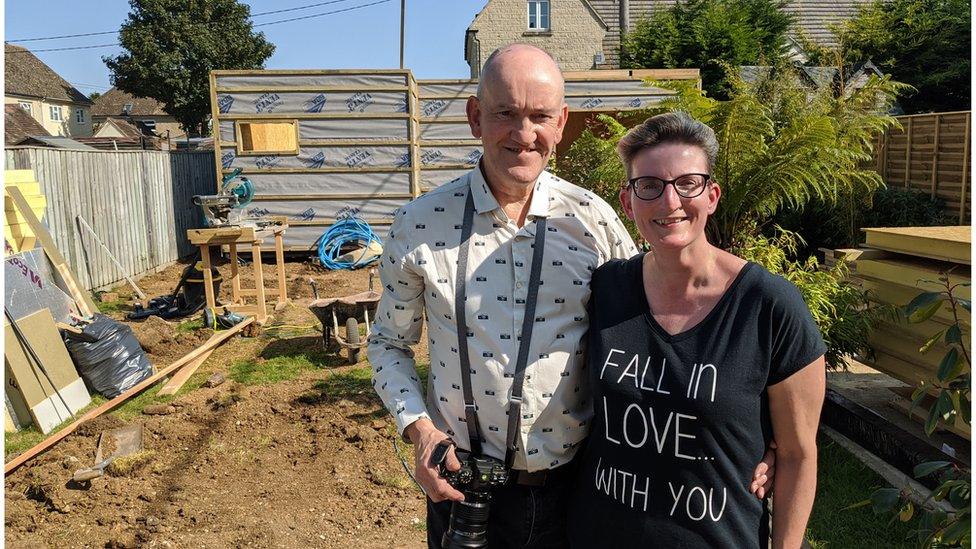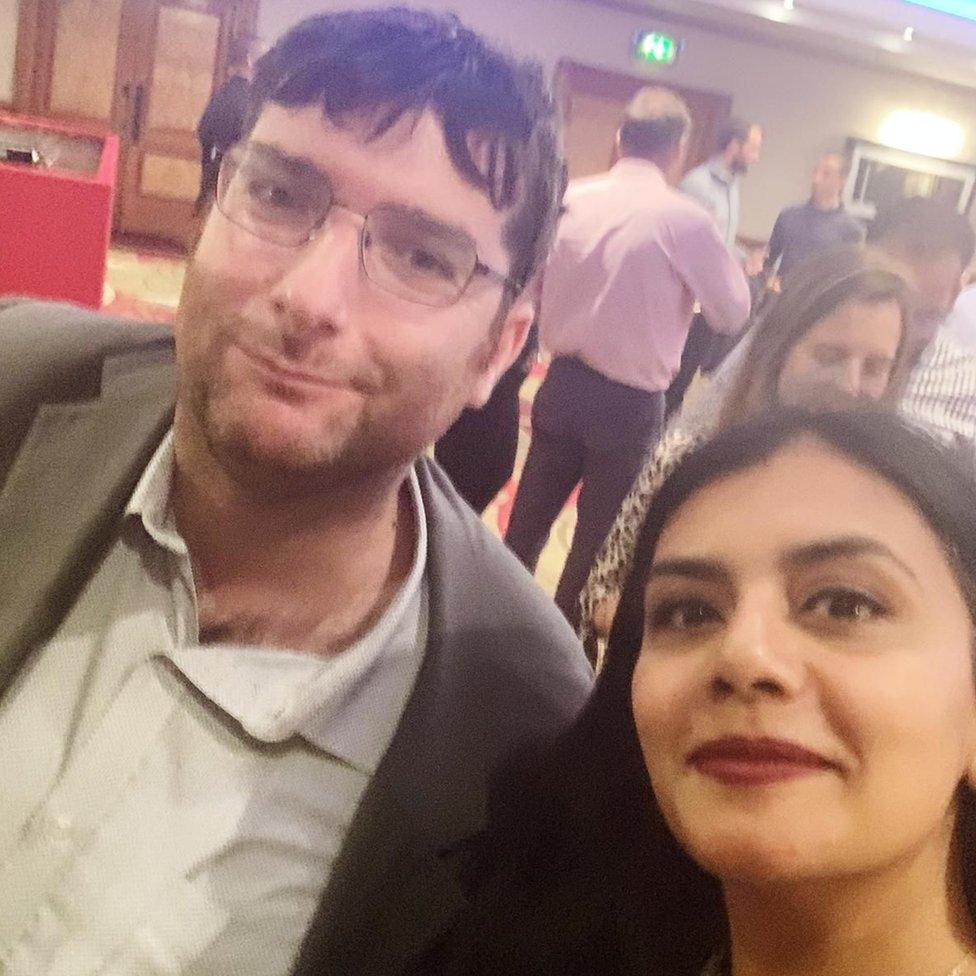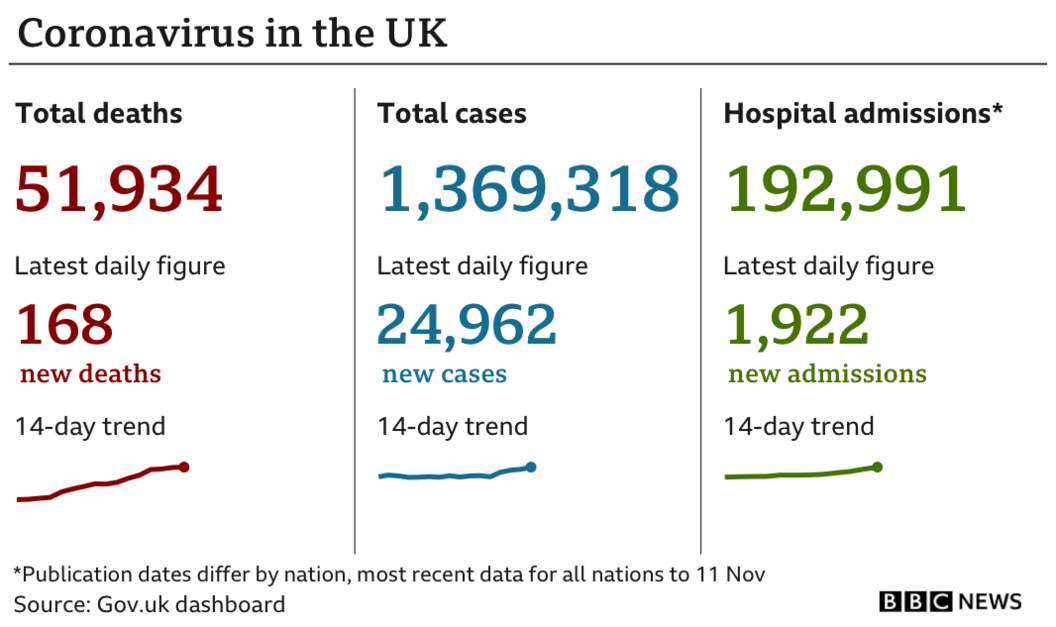Covid-19: PM self-isolating, 'mega labs' and small firms court case
- Published
Here are five things you need to know about the coronavirus pandemic this Monday morning. We'll have another update for you at 18:00 GMT.
1. PM self-isolating - but 'critical announcements' to go ahead
After a tumultuous few days at Number 10 - in which two of his closest advisers left under a cloud - Boris Johnson had been hoping to hit the reset button. He'll now have to do that while staying at home after coming into contact with an MP who tested positive for coronavirus. Downing Street says key meetings will go ahead, albeit remotely, including on spending plans and lifting the lockdown in England. The PM also has big decisions to make on Brexit. Mr Johnson, who was very ill with Covid-19 earlier this year, said he was feeling "fine", but "the rules are the rules".

Mr Johnson said he observed all guidelines and distancing advice during his meeting with MP Lee Anderson on Thursday

2. Two new 'mega labs' promised
The government says the facilities will double the UK's daily virus testing capacity, using technology to get results quicker and at lower cost. We're told they'll open in "early 2021" in Leamington Spa and at another unconfirmed site in Scotland, and will also be used to process tests for other illnesses including cancer. BBC health editor Hugh Pym says the time frame for opening is vague, though. Meanwhile - as another major vaccine trial begins in the UK - Labour is calling for a national plan to roll out a jab soon as one is ready. Find out when that could be.


3. Pandemic payout battle heads to Supreme Court
The UK's highest court will begin hearing a test case later to decide whether insurance companies should cover businesses for losses they incurred during the first UK-wide lockdown. Thousands of small firms believe they should receive money, but insurers say their policies were never intended to cover such unprecedented restrictions. The issue will have had implications for 370,000 businesses, and involves potential payouts of £1.2bn. Hear from some of those affected.

Anna and Robin Smart looked to their insurers for help when they were forced to relocate their business

4. Offices 'vital for community relations'
A report is warning that widespread working from home could lead to an increase in racism and prejudice. The Woolf Institute, which researches interfaith relations, says workplace friendships are key to breaking down misconceptions and normalising diversity, and without them there's a risk people will go "back into isolated silos". Hadiya Masieh, who is Muslim, and Samuel Rosengard, an Orthodox Jew, told us how they became friends as well as colleagues.

Samuel and Hadiya say work gave them shared "passions"

5. A panda in a phone booth...
Like all schools, Morchard Bishop primary in Devon was struggling to fundraise through its traditional events this year due to the pandemic. Not to be beaten though, staff and pupils came up with a plan - a socially-distanced safari trail around the village. Lots of households and businesses took part - think meerkats on the lawn, tarantulas at the playground gate - and so far the school has raised £250.
Devon village create 'safari trail' for local children


And don't forget...
Find more information, advice and guides on our coronavirus page.
Plus, meet the designers and entrepreneurs devising hazmat helmets, aimed at people looking for more protection against coronavirus than just wearing a face mask.


What questions do you have about coronavirus?
In some cases, your question will be published, displaying your name, age and location as you provide it, unless you state otherwise. Your contact details will never be published. Please ensure you have read our terms & conditions and privacy policy.
Use this form to ask your question:
If you are reading this page and can't see the form you will need to visit the mobile version of the BBC website to submit your question or send them via email to YourQuestions@bbc.co.uk, external. Please include your name, age and location with any question you send in.

LACKING MOTIVATION?: 6 hours of dance hits to help you stay energised all day long
THE NAKED SCIENTISTS: Why are people catching coronavirus on purpose?
